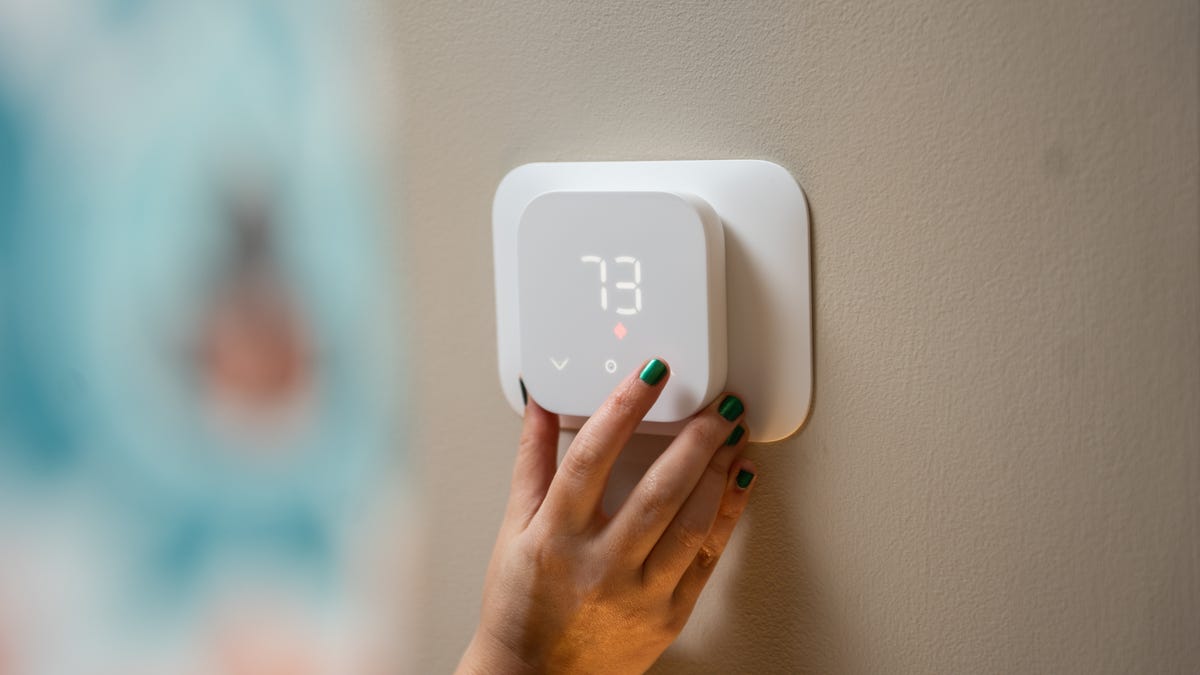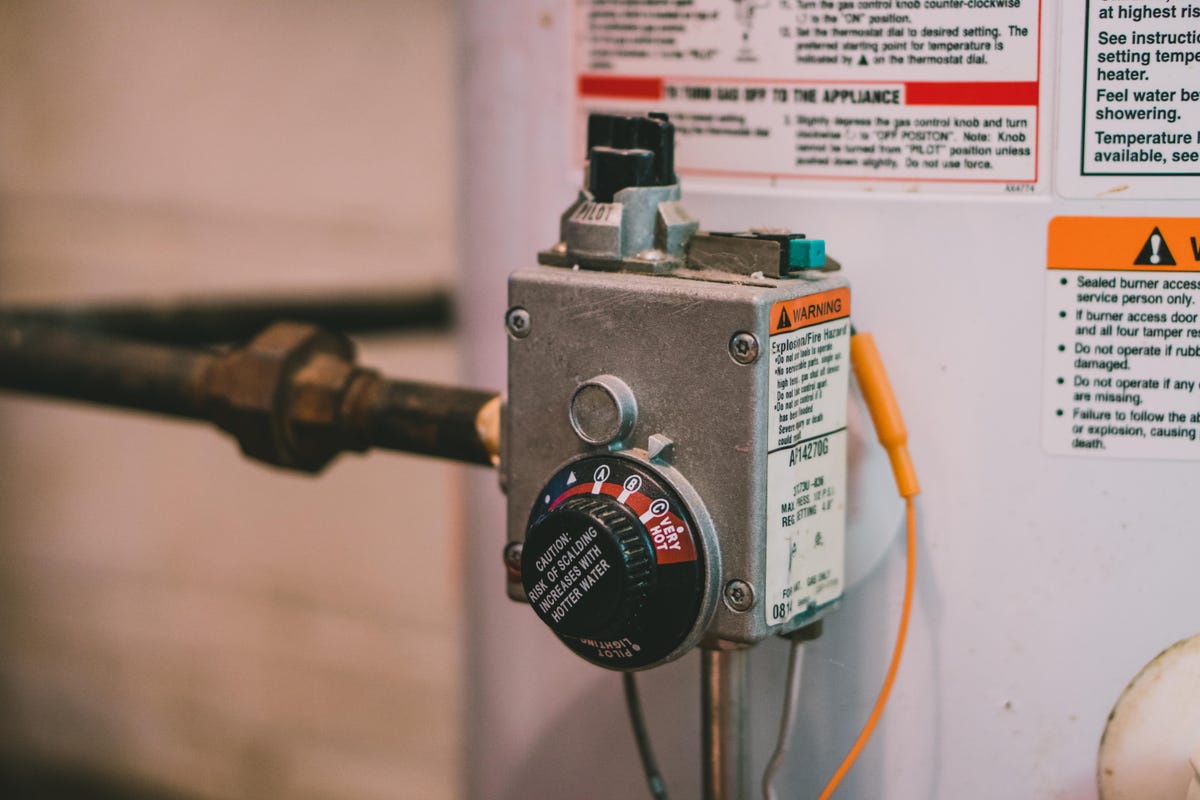[ad_1]
Last year was one of the hottest summers on record, and this year may be no exception, which means we'll be turning down our thermostats more often and with more urgency. With electricity and energy prices remaining high, no matter how much we save, we'll likely end up paying hundreds of dollars in utility bills each month.
If these rising prices are starting to strain your budget, you can start making changes to reduce your energy use and lower your electricity bill. Small habits like unplugging appliances when not in use, changing the way you do your laundry, cooking with energy-efficient appliances, and setting your thermostat to the right temperature can save you small amounts of money and make your home more efficient.
Here are eight steps you can take to save money on electricity, gas, water, and cash: For more money-saving tips, check out how to waterproof your home to save money on your energy bill and easy home upgrades that can save you money on cooling costs in the summer.
1. Get an Electrical Audit
Many utility companies offer free audits, which involve going through your home room by room and reviewing your electric bills to determine where you're wasting energy. You can follow the company's recommendations to reduce your electric bill. Even if you can't get a free audit, you may still qualify for energy-efficient home improvement credits that can help you recoup the costs come tax season.
If your utility company doesn't offer this service, you can easily perform a DIY energy audit of your home by following the instructions on the U.S. Department of Energy's website.
23 ways to save money on your electricity bill right now
See all photos
2. Adjust your thermostat
One of the easiest ways to save money on your energy bill is to adjust your thermostat. According to the U.S. Department of Energy, adjusting your thermostat 7 to 10 degrees for 8 hours a day can save you up to 10% on your heating and cooling costs. That means staying a little warmer in the summer and a little cooler in the winter.
An easy way to do this is to adjust your thermostat when you're sleeping or away from home. If you have a smart thermostat, you can preset it to adjust during these times so you don't forget.

Adjusting your thermostat just a few hours a day can save you a lot on your energy bill.
Chris Monroe/CNET
3. Turn down the temperature of your water heater
Many water heater manufacturers recommend setting your thermostat at 140 degrees Fahrenheit (60 degrees Celsius), but in reality, a maximum setting of 120 degrees is sufficient for most homes. Setting your water heater at a lower temperature can save you hundreds of dollars per year.
Adjusting your water heater's temperature is quick and easy. Your water heater's thermostat dial is located on your electric or gas control valve near the bottom of the tank. Be sure to check your owner's manual for adjustment instructions. If you have any questions, consult a professional technician.

Tuning your water heater can help you save money on your energy bills and keep your energy bills down.
Taylor Martin/CNET
4. Turn off and unplug anything you're not using

Leaving things in your home plugged in and turned on even when you are not using them can unnecessarily increase your electricity bill.
Start by turning off the lights when you're not in the room or when natural light is enough outside. A 40-watt light bulb consumes 4 cents per hour (though the average American will likely pay much more). This amount increases with the wattage of the bulb. It may not seem like a lot, but it certainly adds up over time.
You can also save money by unplugging appliances you're not using. Phantom energy is the energy an appliance uses when it's plugged in but not turned on, which costs an average of $100 a year.
5. Use the dishwasher
It may seem counterintuitive to suggest that you run your appliances to save on your electricity bill. Sure, there was a time when dishwashers used a lot more water than they do today. But the Department of Energy regulates how much water modern dishwashers can use. Dishwashers made after 2013 are limited to using 5 gallons of water. Compact-sized dishwashers are limited to 3.5 gallons.
You might think you use five gallons or less of water to hand wash your dishes, but the U.S. Geological Survey estimates that it takes between nine and 27 gallons of water to hand wash one dish. (If you're interested, here are some tips on how to properly load your dishwasher.)
6. Take advantage of off-peak rates
Electricity usage tends to be higher at certain times of the day and at certain times of the year. First, demand is higher in winter and summer when we run our heaters and air conditioners, and also during the middle of the day and in the evenings.
Some energy companies offer time-of-use plans, with higher rates during peak hours and lower rates during off-peak hours. If you have one of these plans, you can save money on your electricity bill by running large appliances like your dishwasher or washing machine earlier or later in the day.
7. Change your air filter
Air filters trap dirt, dust, pet hair, and more, preventing them from entering your HVAC. If you don't change your air filters regularly, these debris can get into your HVAC system, slowing it down and making it less efficient. According to the U.S. Department of Energy, changing your filters regularly can reduce your air conditioner's energy consumption by 5% to 15%. (You can also find out how much you can save by changing your furnace filter here.)
8. Other ways to save on bills
There are steps, big and small, that you can take to reduce consumption and save money on your electricity bill. The Department of Energy website has a section that provides tips on how to save energy. Many of them cost money, but there are also many free things you can do, such as the ones in this list.
For more, check out these ceiling fan tricks to keep your home cool this summer, and our solar power cheat sheet.
Other tips to save energy and money
[ad_2]
Source link
